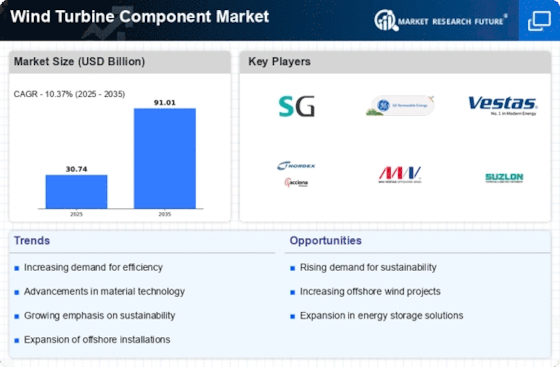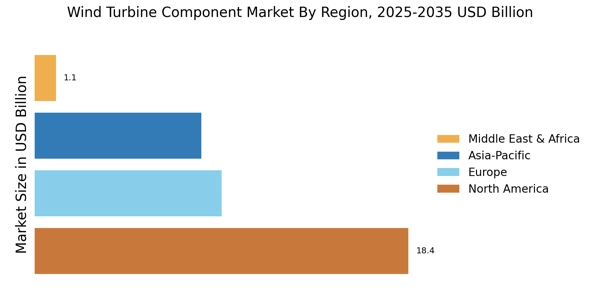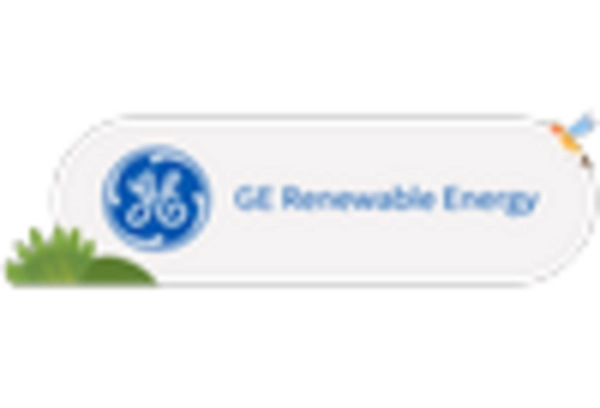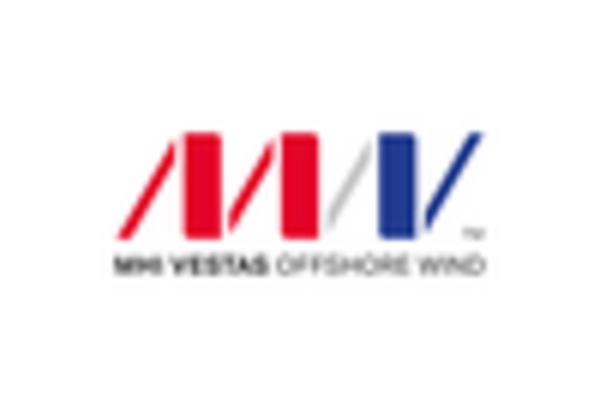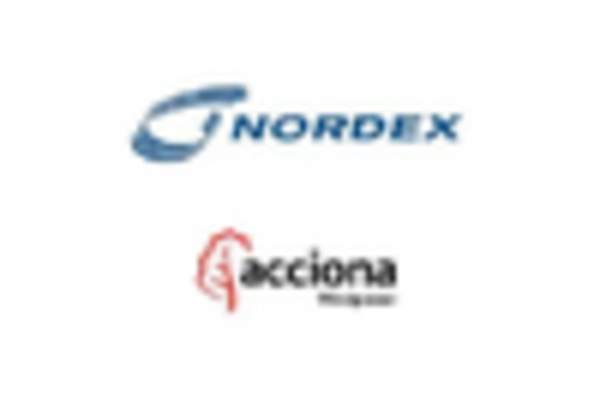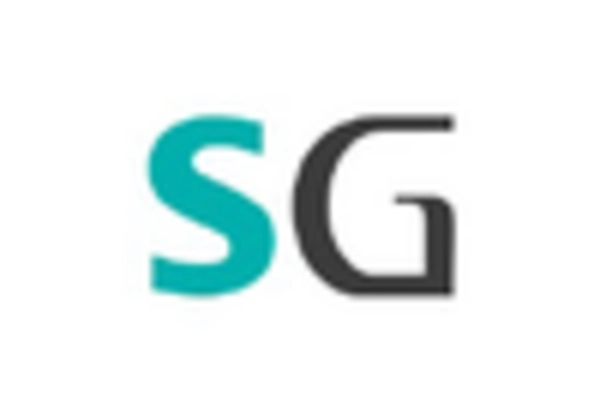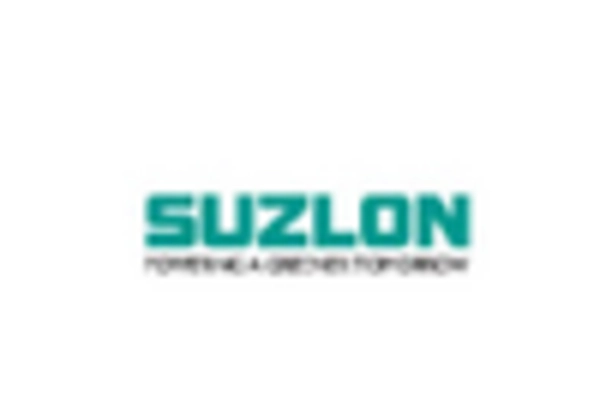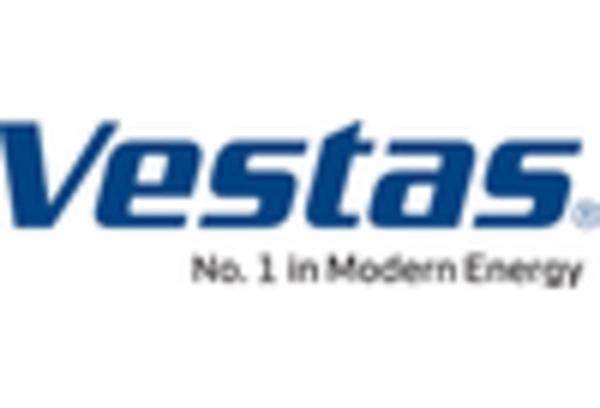Government Policies and Incentives
The Wind Turbine Component Market is bolstered by favorable government policies and incentives aimed at promoting renewable energy. Various countries have implemented tax credits, subsidies, and grants to encourage investment in wind energy projects. For instance, the introduction of feed-in tariffs has made wind energy more financially attractive, leading to increased installations of wind turbines. Recent data suggests that regions with supportive policies have witnessed a 30% higher growth rate in wind energy capacity compared to those without such incentives. This regulatory environment fosters a conducive atmosphere for manufacturers of wind turbine components, as they benefit from increased demand driven by government initiatives. As policies evolve, the Wind Turbine Component Market is expected to adapt, ensuring alignment with national energy goals.
Increasing Demand for Renewable Energy
The Wind Turbine Component Market is significantly influenced by the rising demand for renewable energy sources. As nations commit to reducing carbon emissions and transitioning to sustainable energy, wind power emerges as a viable solution. Recent statistics indicate that wind energy capacity has expanded by over 20% in the last year alone, reflecting a robust investment in wind infrastructure. This growing demand necessitates a corresponding increase in the production of wind turbine components, such as gearboxes and generators. Consequently, manufacturers are likely to ramp up production capabilities to meet this escalating demand, thereby propelling the Wind Turbine Component Market forward. The shift towards renewable energy not only supports environmental goals but also stimulates economic growth through job creation in the sector.
Rising Investment in Infrastructure Development
The Wind Turbine Component Market is experiencing a notable increase in investment directed towards infrastructure development. As countries seek to enhance their energy portfolios, substantial funds are allocated for the construction of wind farms and associated facilities. Recent reports indicate that investments in wind energy infrastructure have surged, with billions of dollars committed to new projects. This influx of capital not only facilitates the installation of new turbines but also necessitates the procurement of high-quality components, such as towers and blades. Consequently, manufacturers within the Wind Turbine Component Market are likely to benefit from this trend, as the demand for reliable and efficient components escalates. The focus on infrastructure development is poised to create a robust market environment, fostering growth and innovation.
Growing Awareness of Environmental Sustainability
The Wind Turbine Component Market is increasingly shaped by the growing awareness of environmental sustainability among consumers and businesses alike. As climate change concerns escalate, there is a collective push towards adopting cleaner energy solutions. This heightened awareness drives demand for wind energy, which is perceived as a sustainable alternative to fossil fuels. Recent surveys indicate that over 70% of consumers prefer products and services that align with environmental sustainability, influencing corporate strategies across various sectors. As a result, companies are more inclined to invest in wind energy projects, thereby increasing the need for wind turbine components. This trend not only supports the Wind Turbine Component Market but also encourages manufacturers to innovate and produce environmentally friendly components, aligning with the broader sustainability goals.
Technological Innovations in Wind Turbine Components
The Wind Turbine Component Market is experiencing a surge in technological innovations that enhance efficiency and performance. Advanced materials, such as carbon fiber and lightweight composites, are increasingly utilized in turbine blades, leading to improved aerodynamic efficiency. Furthermore, the integration of smart technologies, including IoT sensors, allows for real-time monitoring and predictive maintenance, reducing downtime and operational costs. According to recent data, the adoption of these technologies is projected to increase turbine efficiency by up to 15%, thereby driving demand for high-performance components. As manufacturers strive to meet the growing energy demands, the emphasis on innovation in the Wind Turbine Component Market is likely to intensify, fostering a competitive landscape that prioritizes sustainability and efficiency.


